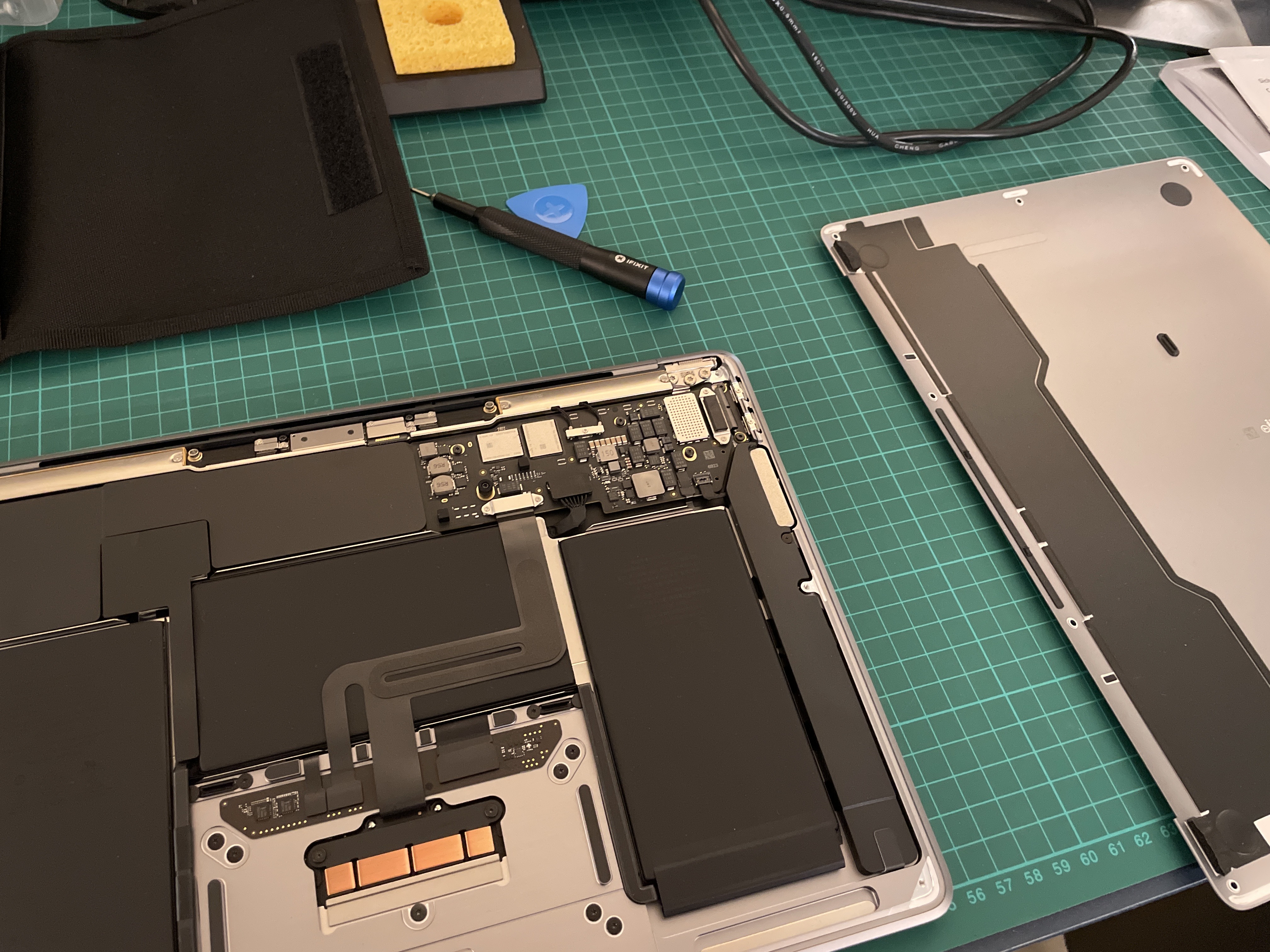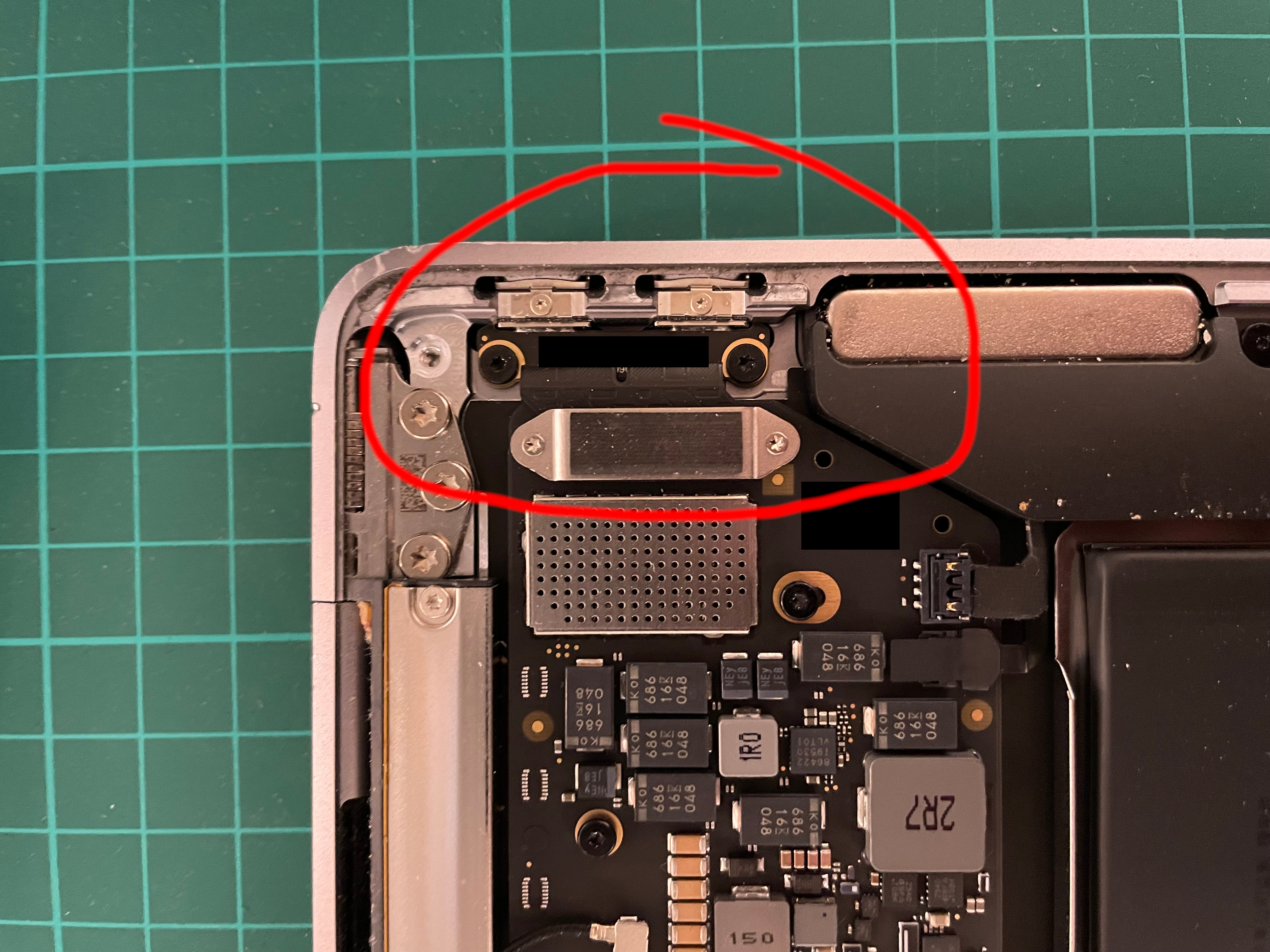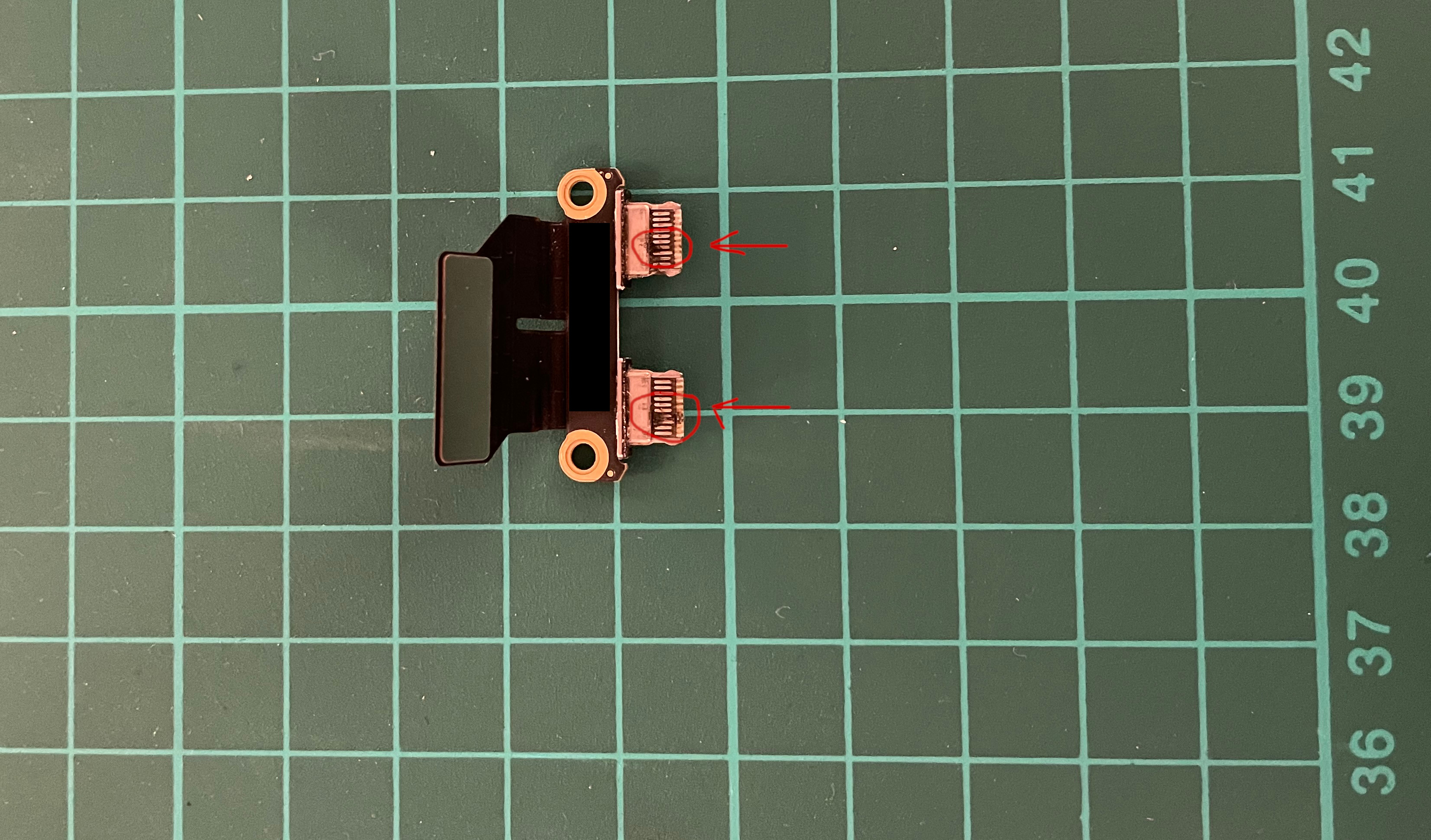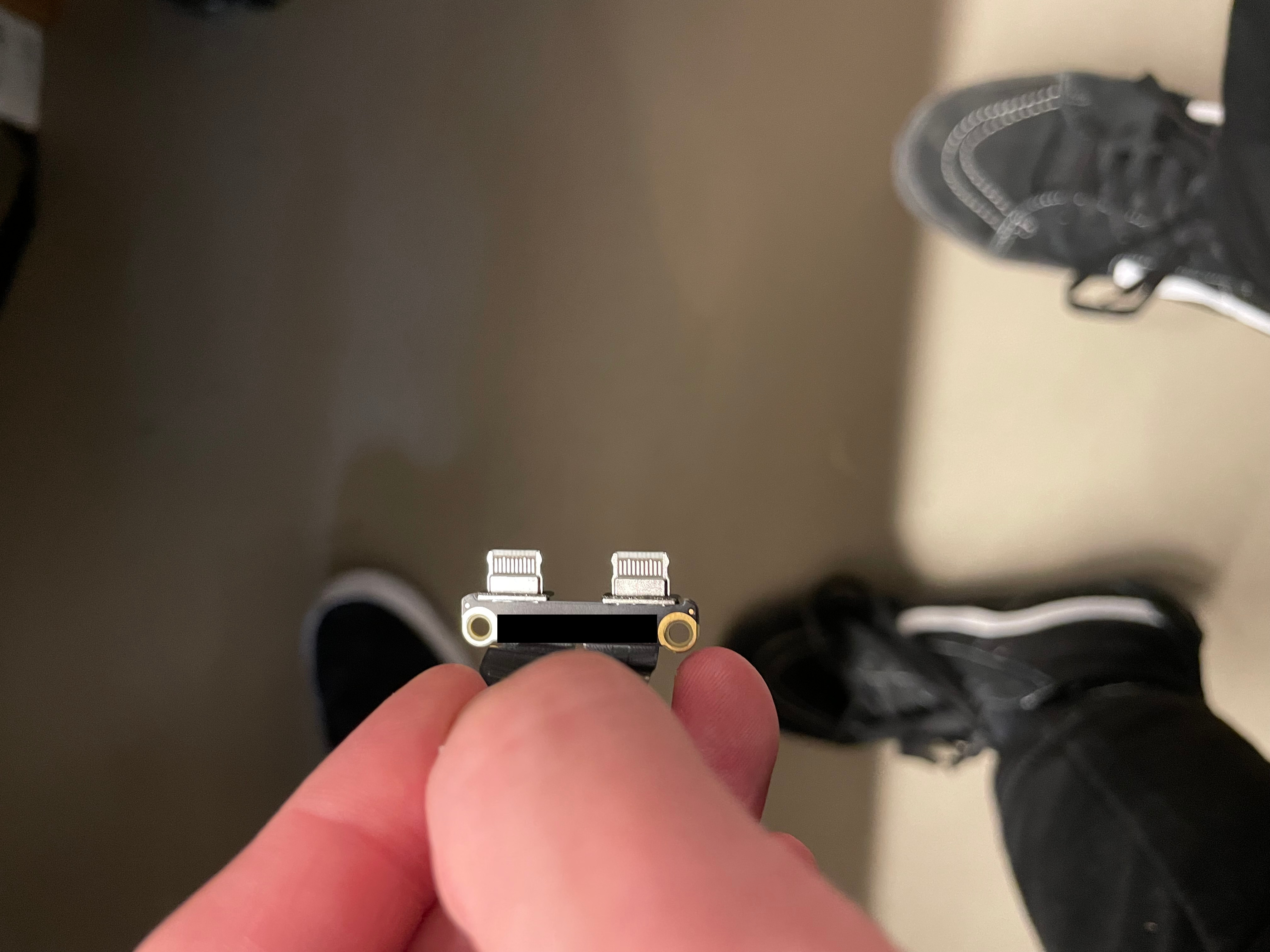
[!CAUTION]
Working on an electronic device can be life-threatening and may lead to accidents such as fire, explosion, or the destruction of the electronic device itself. Please follow the instructions in the article only if you have the necessary electronic knowledge. No guarantee will be granted.
Evening folks,
At work I’ve got a bunch of ‘broken’ 2020 MacBook Airs just lying around on my desk. They all have the same issue: one or both of the USB-C ports aren’t working anymore. Back then, some MacBook Airs had their USB-C ports stop working just a week or two after the users got them. Really weird, right? We all know USB-C ports can wear out, but in this case, most of these MacBooks were almost new or hadn’t been heavily used at all.
So, what’s the plan? Letting them sit there for a couple more decades? No way! I headed over to iFixit and picked up some replacement USB-C boards for around $20 each. Why bother repairing them, you ask? Well, buying a new one will cost you a couple of grand, but these can be used as spare or backup devices. Plus, we could sell them to a B2B provider who could buy them at a better price. Broken MacBooks are usually worth ‘nothing,’ but if they’re fully operational, you could sell them for a good price. Makes sense, right?
Here are some pictures of the Apple MacBook Air 2020 board where the USB-C Board is located:

Above, you see the board of the USB-C Ports on the Apple MacBook Air 2020.
Here’s a closer look at a broken, or let’s say fried or burned one:

And here’s a working one, which is neither fried nor burned:

Potential Causes of USB-C Port Issues
Power Surges and Unstable Voltage
- Unstable voltage or power surges from the outlet can damage the USB-C ports.
- Especially likely if the laptop isn’t connected to a surge protector.
- Check out the Apple Community Discussion for more info.
Faulty or Incompatible Accessories
- Using low-quality or non-certified chargers, cables, and hubs can lead to overheating and damage.
- Issues reported with third-party USB-C hubs, particularly those with Power Delivery (PD) functionality.
- More details on the MacRumors Forum Thread.
Manufacturing Defects
- Inherent defects in certain batches of MacBook Air 2020 units can lead to USB-C port failures.
- Issues where ports stop functioning for data transfer or charging.
Debris and Moisture
- Accumulation of dust, debris, or exposure to moisture can cause short circuits, leading to overheating and port damage.
Known Issues and Reports
Apple Community Discussions
- Users have reported one or more USB-C ports failing to work for charging or data transfer.
- Often requires hardware replacement, such as the USB-C board or logic board.
- See the Apple Community Thread 1 and Apple Community Thread 2.
MacRumors Forums
- Multiple threads discuss recurring USB-C failures on MacBook Air and MacBook Pro models.
- Some users have had to replace their I/O boards or entire logic boards to resolve these issues.
- Check out the discussions on MacRumors Forum Thread 1 and MacRumors Forum Thread 2.
iFixit Guides
- DIY enthusiasts have used guides to replace malfunctioning USB-C boards on their own.
- Highlights the prevalence and DIY repair options for these issues.
- Useful guides can be found on the iFixit Guide.
Got a busted MacBook Air? Don’t let it collect dust. Roll up your sleeves and fix it yourself. It’s more satisfying than you’d think!

Comments